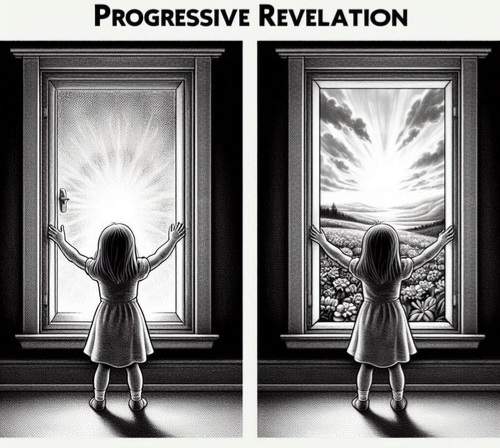Is the Bible’s Inerrancy Defensible At All?
The question hits like a punch to the gut. In universities, seminaries, even churches, the Bible’s inerrancy—the belief that Scripture contains no errors in its original writings—faces relentless assault. Critics dismiss it as intellectual suicide, a relic of fundamentalist thinking that educated people have long since outgrown.
But here’s the thing: the question isn’t whether inerrancy is popular. It’s whether it’s defensible. And despite decades of sustained criticism, biblical inerrancy remains both intellectually coherent and theologically necessary. The real question we should be asking isn’t whether we can afford to believe it, but whether we can afford not to.
IS THE BIBLE’S INERRANCY DEFENSIBLE? WHY WE AFFIRM IT IS
Let’s start with basic logic.
So what if the Bible is God’s Word? If Scripture truly is God’s word—and passages like 2 Timothy 3:16 and 2 Peter 1:21 clearly claim it is—then we face an unavoidable conclusion. Since God cannot lie (Numbers 23:19, Titus 1:2), Scripture cannot contain errors in what it affirms. This isn’t circular reasoning; it’s simply following the implications of divine authorship to their logical end.
Consider the alternative: Critics often dismiss this as simplistic, but consider the alternative. If we accept God somehow authored a book containing errors, we’re forced to conclude either that God lacks knowledge, lacks power to communicate accurately, or deliberately included falsehoods. Each option undermines the fundamental attributes of God that Christianity has always affirmed.
Then there’s Jesus Himself. Christ didn’t just casually reference Scripture—He staked His entire authority on its reliability. In Matthew 5:18, He declared not even the smallest letter would pass away from the Law. In John 10:35, he stated flatly “Scripture cannot be broken.” When He appeared to His disciples after the resurrection, He systematically affirmed the accuracy of the entire Old Testament (Luke 24:27, 44).
Here’s the uncomfortable truth for those who reject inerrancy: if Jesus was wrong about Scripture’s reliability, what else might He have been wrong about? You can’t easily separate Christ’s trustworthiness from His view of Scripture.
The manuscript evidence also supports inerrancy’s defensibility. We possess thousands of early biblical manuscripts, demonstrating remarkable textual stability across centuries. While variations exist, they don’t affect major doctrines. Archaeological discoveries continue supporting biblical accounts rather than undermining them. The burden of proof lies with those claiming errors, not with those defending Scripture’s accuracy.
Addressing the ‘contradictions’: Critics often point to supposed contradictions, but proper interpretation resolves most alleged problems. Inerrancy doesn’t require modern scientific language in ancient texts, nor does it ignore literary genres like poetry and parable. The doctrine accounts for human authorship while maintaining divine oversight—a nuanced position that critics often misrepresent.
WHY WE MUST AFFIRM INERRANCY
- Theological consistency demands inerrancy. Reformed theology’s commitment to God’s sovereignty naturally extends to His word. If Scripture serves as our ultimate authority—the norming norm for all doctrine—then we need objective criteria for distinguishing truth from error within it. Without inerrancy, every biblical claim becomes negotiable based on our preferences or cultural pressures.
- Pastoral ministry requires it too. How can pastors preach with authority if they’re uncertain whether their text contains divine truth or human error? Counselling and discipleship demand reliable divine guidance. Church discipline and doctrinal boundaries become arbitrary exercises without an inerrant foundation.
- Evangelistic integrity depends on inerrancy as well. We call people to trust Christ based on biblical testimony about Him. If that testimony contains errors, how can we ask others to stake their eternal destiny on it? The gospel’s credibility is inseparably tied to Scripture’s reliability.
- Historical precedent validates this position. The early church universally affirmed Scripture’s complete reliability. Reformed confessions consistently teach biblical inerrancy. Revival movements throughout history have been grounded in high views of Scripture. The pattern is unmistakable: biblical fidelity correlates with spiritual vitality.
THE STAKES: WHAT WE LOSE WITHOUT INERRANCY
The consequences of abandoning inerrancy are catastrophic, not theoretical.
First, we face epistemological chaos. Who decides which biblical claims are trustworthy? Human reason and experience inevitably become the final authorities over divine revelation. Every doctrine becomes negotiable based on cultural trends. We’re left with the “canon within the canon” problem—picking and choosing which parts of Scripture to believe.
The Christological implications are even more serious. If Scripture errs about supposedly peripheral matters, why should we trust its central claims about Christ? Jesus’ own view of Scripture becomes questionable. The incarnate Word’s testimony about the written Word loses credibility, undermining our confidence in Christ’s reliability and knowledge.
Ecclesiastically, the pattern is clear and consistent. Biblical criticism leads to doctrinal compromise, which leads to moral relativism. Churches lose their prophetic voice in culture. Discipline and accountability weaken. Confidence in evangelism and missions declines. We can observe this trajectory in mainline Protestant denominations that abandoned inerrancy decades ago.
Pastorally, the effects are devastating. Preaching becomes mere opinion-sharing rather than proclamation of divine truth. Counselling loses its supernatural authority. Comfort in suffering becomes wishful thinking rather than divine promise. Leadership decisions lack biblical grounding. Ministers become therapists rather than shepherds of God’s flock.
CONCLUSION: SO IS THE BIBLE’S INERRANCY DEFENSIBLE?
Biblical inerrancy isn’t intellectual suicide—it’s intellectual honesty about Scripture’s own claims. The alternatives create far more problems than they solve. This isn’t about defending an abstract theory but affirming what Christ Himself taught about God’s word.
Yes, inerrancy requires careful scholarship and nuanced interpretation. Yes, it demands intellectual humility when facing difficult passages. But these challenges pale compared to the impossibility of maintaining consistent Christian doctrine without it.
The question isn’t whether inerrancy is convenient for modern sensibilities. The question is whether it’s true. And if Scripture is indeed God’s word—breathed out by Him and carried along by the Holy Spirit—then inerrancy isn’t just defensible. It’s inevitable.
The real challenge isn’t to our intellect but to our pride. Will we submit to what Scripture claims about itself, or will we reshape it to fit contemporary expectations? The choice we make will determine not just our theology, but the future of biblical Christianity itself.
IS THE BIBLE’S INERRANCY DEFENSIBLE? RELATED FAQs
What’s the difference between the Chicago Statement and other ‘inerrantist’ positions? The Chicago Statement (1978) is the most widely accepted definition of inerrancy today, signed by over 300 Bible scholars. It says the Bible is without error in the original manuscripts and recognises the Bible’s use of different writing styles like poetry and historical narrative. While most evangelicals follow this definition, some scholars emphasise different aspects—like how Scripture functions as God’s communication to us, or how we balance Bible study with reason and experience in learning truth.
- How do inerrantists handle apparent scientific conflicts like the age of the earth? Contemporary inerrantists take various approaches to Genesis and cosmology. Young Earth Creationists like Ken Ham maintain literal 24-hour creation days, while Old Earth Creationists like Hugh Ross accept geological ages but reject evolution. Framework theorists like Meredith Kline view Genesis 1 as a literary framework rather than chronological sequence. All maintain that properly interpreted Scripture doesn’t conflict with properly interpreted natural revelation, though they disagree on hermeneutical details.
- What about textual variants—don’t they undermine inerrancy? Inerrancy applies to the original autographs (autographa), not copies. Contemporary text critics like Daniel Wallace estimate we can reconstruct 99.75% of the original text with confidence. Most variants involve spelling, word order, or obvious copying errors that don’t affect meaning. Where significant variants exist (like the longer ending of Mark), modern translations note them. The abundance of manuscripts actually strengthens confidence in the original text compared to other ancient documents.
- How do modern inerrantists approach historical criticism and archaeological challenges? Leading evangelical scholars like Craig Blomberg and Ben Witherington engage seriously with historical-critical methods while maintaining inerrancy. They argue proper historical methodology, when applied fairly, supports biblical reliability. Archaeological discoveries have consistently vindicated biblical accounts previously doubted by critics. When facing unresolved tensions, inerrantists maintain insufficient evidence doesn’t prove error—it simply requires patience and further research.
How does inerrancy relate to biblical interpretation and hermeneutics? Inerrancy doesn’t dictate specific interpretive methods, but it does establish boundaries. Contemporary inerrantists like Grant Osborne emphasise inerrancy must be coupled with sound hermeneutics that consider genre, context, and authorial intent. The doctrine protects against interpretive approaches that dismiss biblical claims as false, but it doesn’t resolve all interpretive debates. Different inerrantists can still disagree on specific textual meanings while affirming the text’s truthfulness.
IS THE BIBLE’S INERRANCY DEFENSIBLE? OUR RELATED POSTS
Editor's Pick

Sacred Sorrow: Why Jesus Calls Mourning a Blessing
MAKING SENSE OF THE DIVINE PARADOX IN MATTHEW 5:4 When Jesus declared, “Blessed are those who mourn, for they will [...]

‘Sell Everything You Have…’: Are We To Do So Literally?
When Jesus encountered the rich young ruler in Matthew 19:21, His words cut through with startling clarity: “If you want [...]

Why Jesus Said ‘It’s Better I Go Away’…
THE SUPERIOR GIFT OF THE HOLY SPIRIT “Nevertheless, I tell you the truth: it is to your advantage that I [...]

What About Those Who’ve Never Heard the Gospel?…
WILL GOD SHOW THEM MERCY ON JUDGEMENT DAY? Few questions tug at the Christian’s heart like this one. Picture the [...]

Cities of Refuge: Foreshadowing Our Safe Haven in Jesus
Picture this: A man is chopping wood with his neighbour when the axe head flies off the handle, striking and [...]

Testament to Design: The Engineering Marvel of Elephants
Picture an African elephant delicately plucking a single acacia leaf with the tip of its trunk, then moments later using [...]

Blue Whales: Mammoth Icons of Intelligent Design
Imagine an animal so massive its heart alone weighs as much as a small car, yet so precisely engineered it [...]

Do Unbelieving Kids Disqualify Church Leaders?
REFORMED PERSPECTIVES ON 1 TIMOTHY 3 AND ELDER QUALIFICATIONS Every pastor knows the heartbreak. A faithful elder who has served [...]

Why Did God Kill Onan? Wasn’t the Punishment Disproportionate?
The story of Onan in Genesis 38 troubles many. Why would God strike down a man for what seems like [...]

Is God Preparing Me for Ministry? How May I Know for Sure?
The question haunts many faithful believers. You’re serving faithfully in your local church, perhaps teaching Sunday school or leading a [...]
SUPPORT US:
Feel the Holy Spirit's gentle nudge to partner with us?
Donate Online:
Account Name: TRUTHS TO DIE FOR FOUNDATION
Account Number: 10243565459
Bank IFSC: IDFB0043391
Bank Name: IDFC FIRST BANK






